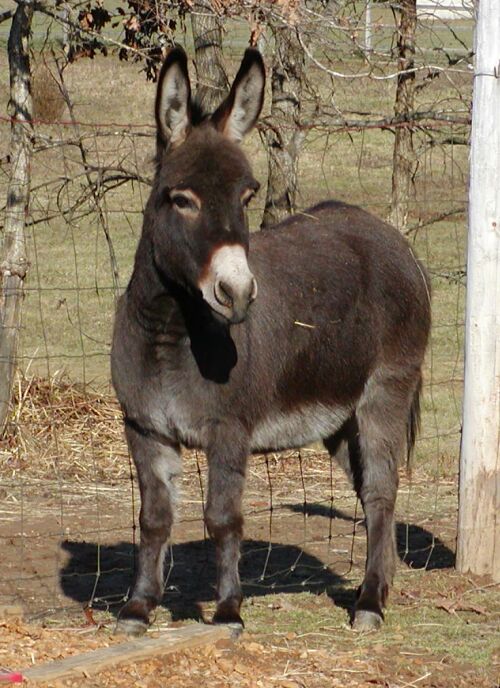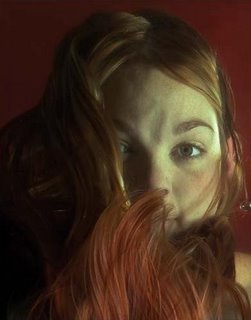after that
carmen senior seminar, i have to say that looking at gounod's
romeo et juliette avec soustitres (heh...that may or may not mean "subtitles" in french--it's okay to show off if you look like a freaking ass) was pretty awesome. it put the lotion on the skin. and now i will tell you why.
without having the skills of a leicester, i can yet pick up on a few of the things his viewpoint might dictate, or what i learned as his viewpoint has to me dictated. the insertion (the fairly forcible insertion) of god into the original shakespeare is...well, it brings up interesting stuff. like, i think most of the characters, especially juliette and the friar, are replacing their own issues, desires, and unknowns with god. for the most part this doesn't make them the least bit less sympathetic, especially juliette--it seems to me that opera-juliette's obsession with bringing god into everything is an obliquely strong method of replacing the more word-consuming character subtleties in the play-juliet.
one thing i think that setting words to music does is accentuate the awkwardness of how meaning sits on top of language, or how language sits on top of the body. (body body body! i am sorry-sorry!) in the gounod, it seems that at times the two actually go head-to-head, as in the bedroom scene: i watched it without knowing what they were saying, though having a vague idea, based on the staging, some idea of the play, and the music, of what they
ought to be saying, for at least a week, before watching it with subtitles, and i was pretty surprised by what they actually
were saying. there's this beautiful, tender, not-languid-but-liquid-sorta music going on under the singing--the vocal lines are doing that thing (i think--i ought to pay more attention) where they sort of weave in and out of the orchestral music almost as afterthoughts, and it turns out that what juliette opens the scene with is recontextualized material from the play dealing with the subject of tybalt. it's basically the thing she says to the nurse, " should i be something-something he who is my husband?" except put into the post-coital scene and addressed to romeo. i mean, WHAT?? (unless this was in the original bedroom scene and i just don't remember it. curse you, shoddy memory and laziness!)
but it works, because the portrayal the librettist puts to juliette is one of an extremely intelligent, articulate and quick-witted girl who at the same time is completely cut off within her own subjectivity when it comes to, you know, "desire" (and that in itself is a definite stand-in--who knows if it's desire?). she doesn't know what the
manners are in love--literally, she doesn't know the language, the word-objects which will stand in for the things she wants to express; she doesn't know how to
say what she wants, what she expects of herself or him or society. so she borrows a language and a signifier that she understands--she re-appropriates god to express her passion and her fears, her whole comprehension of her situation. the play-juliet, as far as i remember, doesn't do something so...not simple, but--encapsulateable (improperly by my lazy ass)--but the magnitude of her challenge is on a similar (or not un-equivalent) level.
if juliette puts her confusion and her inexpressibles into the language of god, the friar does so as well--and because he's a friar, he does so almost exclusively. out of all of the characters he's the bizarrest. the play-friar's at least somewhat explicable in light of the duke in
measure for measure (because i feel like the duke is the dvd extended version of
r & j's friar, an exploration of the same sort of concept of character)--too wrapped up in a logical world which follows certain rules, like those of his herbs, to behave at all practically, or realize that he himself doesn't follow those rules at all. but the opera-friar is--well, it seems like the language of god, which takes the place of other languages that characters don't know how to speak, takes the place of
all of his language. he's got this enthusiasm that i can't describe because i don't know the opera well enough; i guess it's that he doesn't just place some of his faith in "god," but all of it, to the point at which god becomes totally and completely divorced from objecthood and turns into all of his subjecthood. because god is entirely personal with him, the things he attributes to god are the things he desires, allows, and works to make happen. the opera-friar and the god he speaks of are completely interpenetrate. it's just interesting. gounod has him sing on the same note a whole lot, so that his lyrics too came as a surprise to me--he sounds as though he's a very stable character...but
man.
this is interesting. maybe it means that instead of the music expressing desire, emotion, and whatnot, it instead expresses what
ought to be going on in a particular scene, while the lyrics express what actually
is... unfortunately, i hate that explanation. the alternative i like better can be borrowed from the duel scene, and the crazy things gounod at times does in the score. romeo's lament, "o jour de deuil," is the freaking wackiest lament ever. the melody goes from the third, to the second, then up to the sixth, then fifth, then to the first, then the seventh below it, then up to the fourth, and the third--in a major key, slow, with a distinctive rhythmic pattern. this is the melody line; when i first heard it i was like, dude, you're kidding me, right? but i think now that it means something like, gounod was thinking outside the box. he was thinking big-time outside the box when he came up with this melody. it lacks all of the signifiers i think of when i think of lamentation: it isn't rhythmically unsteady or ragged (not exactly, that is--not in the manner i would think of), it isn't either quick or smooth, it isn't in minor, its intervals aren't traditionally shocking ones--it's just jumbled, but its rhythm isn't jumbled... none of the requirements for lamentation are met, and yet it works so well, so hard, as though gounod actually captured the moments of raw shock and pain, and then translated them into the notes that a person would force themself to sing in that situation: trying to force meaning through notes that have been overplayed, oversung, oversignified. and if you take this out of the boxiness and apply it to friar lawrence, you come up with the fact that, possibly, gounod's going far out with the friar's music as well, searching for things to signify which have never signified thus before: his sustained notes carry sustained and restrained, and redirected energies--his conception of his own feelings is unified into one thing, which is god, but what use he makes of god!, the orchestra expresses...
something.











